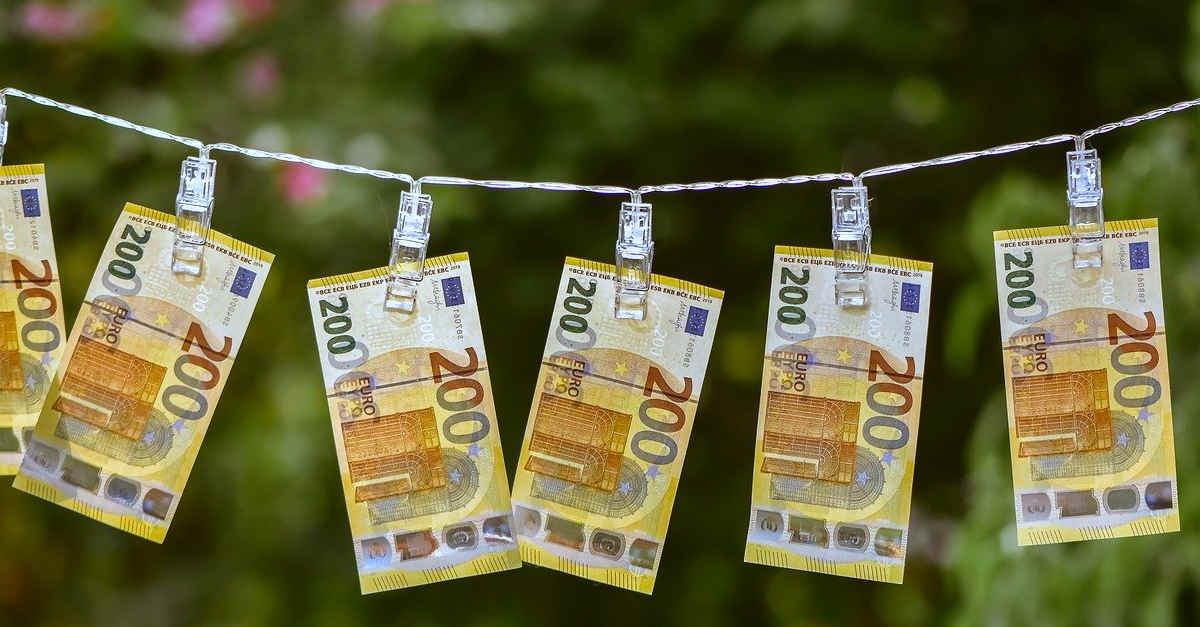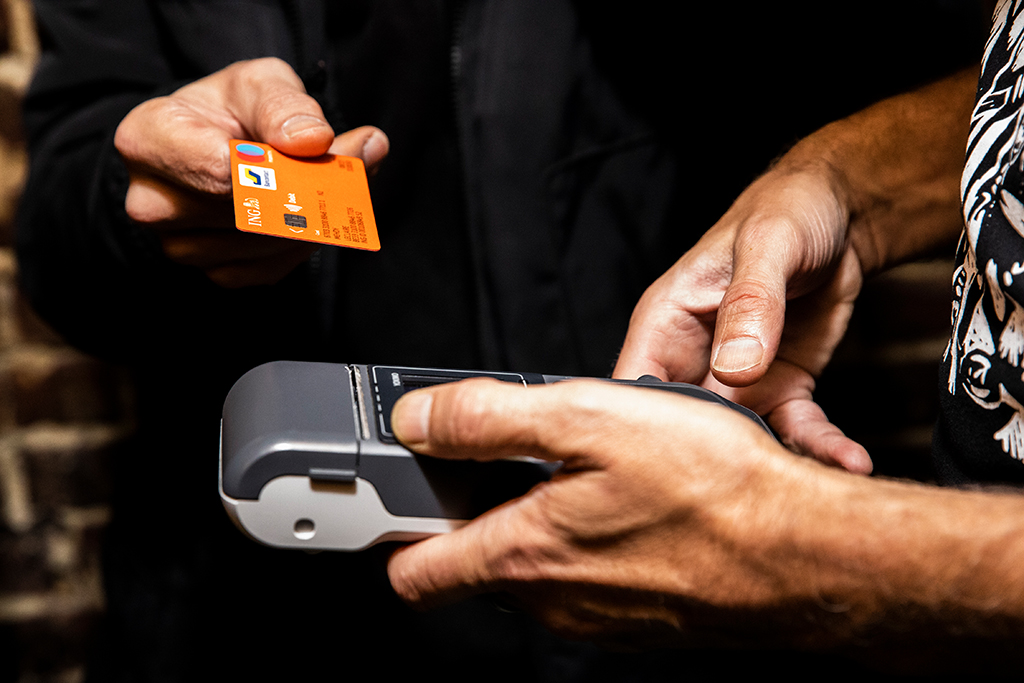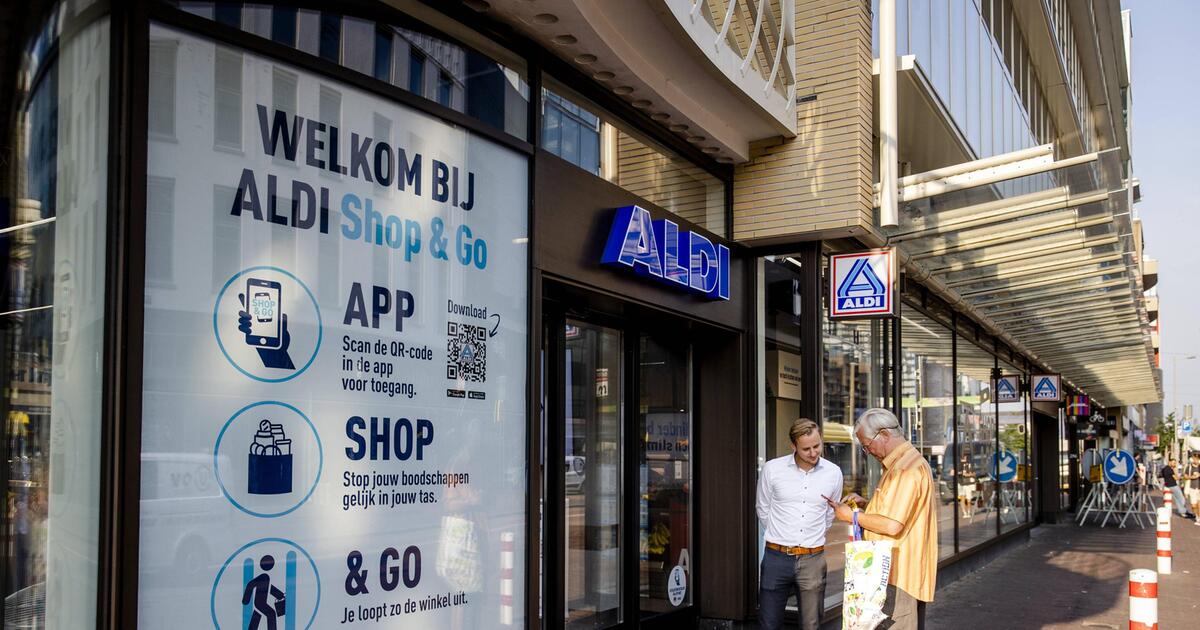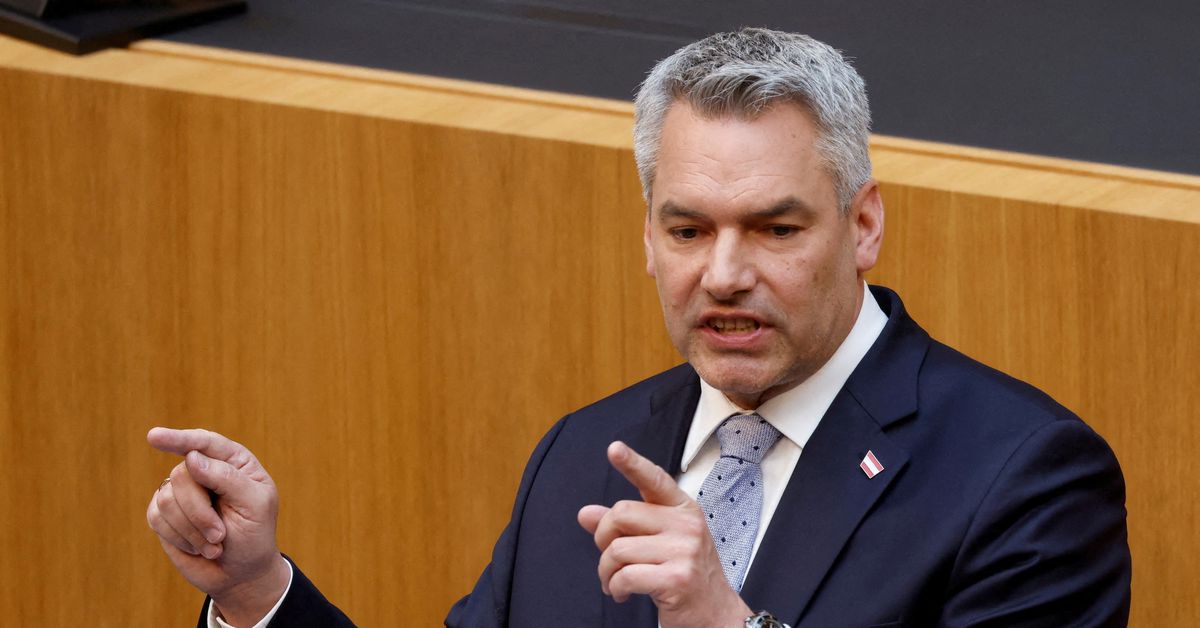-Luke-
Member
I used cash at the grocery store the other week. Even though the cashier was touching the same groceries everyone else was touching, as soon as I said I was paying with cash, she put gloves on ?
Follow along with the video below to see how to install our site as a web app on your home screen.
Note: This feature may not be available in some browsers.
Click Here if you want to upgrade your account
If you were able to post but cannot do so now, send an email to admin at raypeatforum dot com and include your username and we will fix that right up for you.
I used cash at the grocery store the other week. Even though the cashier was touching the same groceries everyone else was touching, as soon as I said I was paying with cash, she put gloves on ?
Hello Dave nice to see you hope you're wellYou should have laughed and said, "Ha, legal tender. Get a lawyer, goodbye."
100%When was the last time you used cash?
You read comments stating there's nothing to do about the oligarchy's plans (via the government), but isn't this just laziness talking?
The same laziness that brought us to this point.
Today we still have the luxury of using cash, so are we?
Indians used non-violent resistance against British rule, are you resisting your government's plans by using cash?
Do you keep your money as a number in a large bank's computer system?
We don't know what hardcore oppression is yet.
Once the government gets its digital grid in place, it won't need to do much to isolate dissidents.
Disconnecting them from the economy (no buy or sell) would leave them destitute.
Lazy minds can't envision the future, which is the past.
And how we burned in the camps later, thinking: What would things
have been like if every Security operative, when he went out at night to
make an arrest, had been uncertain whether he would return alive and had to
say good-bye to his family? Or if, during periods of mass arrests, as for example
in Leningrad, when they arrested a quarter of the entire city, people had not
simply sat there in their lairs, paling with terror at every bang of the down-
stairs door and at every step on the staircase, but had understood they had
nothing left to lose and had boldly set up in the downstairs hall an ambush of
half a dozen people with axes, hammers, pokers, or whatever else was at hand?
After all, you knew ahead of time that those bluecaps were out at night for no
good purpose. And you could be sure ahead of time that you'd be cracking the
skull of a cutthroat. Or what about the Black Maria sitting out there on the
street with one lonely chauffeur - what if it had been driven off or its tires
spiked? The Organs would very quickly have suffered a shortage of officers
and transport and, notwithstanding all of Stalin's thirst, the cursed machine
would have ground to a halt!
If ... if ... We didn't love freedom enough. And even more - we had no
awareness of the real situation. We spent ourselves in one unrestrained
outburst in 1917, and then we hurried to submit. We submitted with pleasure!
... We purely and simply deserved everything that happened afterward.
― Aleksandr I. Solzhenitsyn, The Gulag Archipelago 1918–1956 (ch 1, p. 13)
When was the last time you used cash?
You read comments stating there's nothing to do about the oligarchy's plans (via the government), but isn't this just laziness talking?
The same laziness that brought us to this point.
Today we still have the luxury of using cash, so are we?
Indians used non-violent resistance against British rule, are you resisting your government's plans by using cash?
Do you keep your money as a number in a large bank's computer system?
We don't know what hardcore oppression is yet.
Once the government gets its digital grid in place, it won't need to do much to isolate dissidents.
Disconnecting them from the economy (no buy or sell) would leave them destitute.
Lazy minds can't envision the future, which is the past.
And how we burned in the camps later, thinking: What would things
have been like if every Security operative, when he went out at night to
make an arrest, had been uncertain whether he would return alive and had to
say good-bye to his family? Or if, during periods of mass arrests, as for example
in Leningrad, when they arrested a quarter of the entire city, people had not
simply sat there in their lairs, paling with terror at every bang of the down-
stairs door and at every step on the staircase, but had understood they had
nothing left to lose and had boldly set up in the downstairs hall an ambush of
half a dozen people with axes, hammers, pokers, or whatever else was at hand?
After all, you knew ahead of time that those bluecaps were out at night for no
good purpose. And you could be sure ahead of time that you'd be cracking the
skull of a cutthroat. Or what about the Black Maria sitting out there on the
street with one lonely chauffeur - what if it had been driven off or its tires
spiked? The Organs would very quickly have suffered a shortage of officers
and transport and, notwithstanding all of Stalin's thirst, the cursed machine
would have ground to a halt!
If ... if ... We didn't love freedom enough. And even more - we had no
awareness of the real situation. We spent ourselves in one unrestrained
outburst in 1917, and then we hurried to submit. We submitted with pleasure!
... We purely and simply deserved everything that happened afterward.
― Aleksandr I. Solzhenitsyn, The Gulag Archipelago 1918–1956 (ch 1, p. 13)
Likewise!Hello Dave nice to see you hope you're well

 bargeldverbot.info
bargeldverbot.info
Things are slowly but surely getting tighter for cash. At least 18 EU countries are now restricting the use of cash, and the trend is for the thumbscrews to be tightened. In Greece, many citizens are already being forced to pay digitally. Below is an overview of the restrictions in place. Most importantly, you will learn about the development of cash caps. Such cash payment bans usually deprive private individuals of the opportunity to purchase goods above a certain value in a store.BelgiumBelgium had a cap of 15,000 euros for a long time. It dropped to 5,000 euros on April 16, 2012, and fell to 3,000 euros on January 1, 2014. The justification for the measure has always been the fight against money laundering and terrorist financing. Bulgaria
Bulgaria bans payments above an amount of about 5100 EUR (10,000 BGN) since Jan. 1, 2016. Previously, a cap of 15,000 BGN applied since Feb. 22, 2011. A draft law from 2017, which envisaged lowering the limit to BGN 1000 by 01.01.2019, was criticized by the European Central Bank and subsequently not implemented. The implementation would have resulted in the use of the 500 euro bill being punishable, depending on the currently valid exchange rate.
Denmark
Since July 1, 2021, payments of only approximately EUR 2700 (DDK 20,000) have been allowed. Previously, a threshold of 50,000 Danish kroner had applied since 2013. Even earlier, a law of February 27, 2006, set a cap of 100,000 DDK (the equivalent of about 13,500 euros today); from the name of the law, it was about measures to combat money laundering and terrorist financing.
France
French lawmakers have been pushing for years to restrict cash transactions. Recently, Brussels announced a minimum cash ban from the amount of 10,000 euros EU-wide. However, this does not go far enough for Paris. In France, a ban on cash payments starting at 1,000 euros has been in effect since September 1, 2015. Previously, an upper limit of 3000 euros had applied from June 19, 2010. Soon after, an attempt was made to lower it to 1000 euros, but this failed. After the attacks in Paris, however, the plan was pushed through.
Greece
The law of 22.12.2016 introduced a limit of 500 euros. The government's plan to lower the limit to 300 euros from 2020 was not implemented after an objection from the ECB. Instead, an even more drastic measure was implemented. Handelsblatt writes:
"[...] as of this year, Greek taxpayers must prove that they spend at least 30 percent of their taxable income in electronic form, i.e. by card payment or bank transfer. Those who fail to meet the quota must pay a 22 percent penalty tax on the difference."
Before a ban on cash of 500 euros or more had been mandatory, a cap of 1500 euros had been in place since January 1, 2011.
Italy
In Italy, the cash ceiling went haywire. It is currently 2000 euros, and will be reduced to 1000 euros on January 1, 2022.
A cash ceiling of 10 million liras (about 10,000 euros) was in place from 1991. In 2002, an outright amount of 12,500 euros was set. In 2007, the threshold was lowered to 5,000 euros, only to be immediately raised again to 12,500 euros by the following government in 2008. In the same legislative period, however, the value was lowered again to 5,000 euros in 2010 and to 2,500 euros at the beginning of 2011. Then came the transitional government of Mario Monti. And right at the beginning, in December 2011, the ceiling was lowered to 1000 euros on his initiative.
Mateo Renzi, on the other hand, saw to it that the threshold was raised to 3000 euros in the fall of 2015. He justified the move as follows:
"No more terror. Those who have the opportunity to pay up to 3,000 euros in cash should do it. There are other ways to fight tax evasion."
The move was reversed in the fall of 2019, with the limit initially dropping to 2,000 euros on July 1, 2020, and soon to return to 1,000 euros. In 2020, Prime Minister Conte advocated a world of payment and payment where every transaction is traceable. Extensive promotional measures for cashless payment were devised, but some of them have since been suspended or discontinued.
ECB Director Yves Mersch wrote to Italy's economy minister on Dec. 13, 2019, to complain about the anti-cash measures. The ECB has not been consulted by Italy on the whole matter, according to Reuters. When asked, ECB President Lagarde wrote on May 15, 2020, that the ECB has not yet received a response from Rome.
Croatia
Since Jan. 1, 2018, it has only been possible to settle purchases of less than about EUR 10,000 (HRK 75,000) in cash. Previously, there was a cap of 105,000 kuna (about 14,000 euros). It was decided in 2008. As in other countries, the measure was called an anti-money laundering and anti-terrorist financing law.
Latvia
From January 1, 2017, cash payments of 7200 euros or more were prohibited. The rule is found in the Latvian Law on Taxes and Duties. In March 2019, talk of dropping the limit to 3000 euros caused consternation.
The increasingly totalitarian conditions can be seen in the experiences of a Latvian citizen, which were picked up by the press: He had sold his car for 5600 euros and then deposited the amount via an ATM. When he wanted to pay a larger bill shortly afterwards, the bank refused to make the transfer. He would first have to explain where the 5600 euros had come from.
Lithuania
In 2017, the government approved the Ministry of Finance's proposal to introduce a cash cap of EUR 3000. After all, the EU recommends it, the people were told. However, according to media report from January 2018, the project was postponed.
Malta
From March 9, 2021, a strict cash ban will apply from purchases of EUR 10,000.
Netherlands
According to an official press release on September 25, 2020, the Council of Ministers in Holland decided to introduce a cash ceiling of 3000 euros. This is said to be "measures to combat money laundering and terrorist financing more effectively".
Dutch Finance Minister Wopke Hoekstra thinks the planned EU-wide cap of 10,000 euros is too lax. He is said to have written to the House of Representatives that the Netherlands, Belgium, France, Italy and Spain are pleading with the EU Commission for a cash ban starting at 5,000 euros. This is the same amount that was brought up by Wolfgang Schäuble at the beginning of 2016.
Poland
Entrepreneurs are not allowed to conduct business among themselves in cash in the amount of approximately EUR 3300 (PLN 15,000) or more. Previously, they had to comply with a cap of EUR 15,000.
Portugal
Portugal last adjusted its cash cap in 2017. Since August 23, 2017, a cash ban of 3,000 euros or more has been mandatory. The law even brings an upper limit of 1000 euros for people who are subject to income tax in Portugal and have to keep accounts.
Romania
In Romania, the cap was lowered to about 1100 EUR (5000 RON) on May 9, 2015. The restriction was coupled with the throttling of interchange fees. The Interchange Fee Regulation is a legislative project of the EU that, among other things, implemented a reduction in the fees that retailers have to bear when a customer pays by card. The explanatory memorandum to this EU regulation stated, for example (emphasis added by capital letters by Bargeldverbot.info):
"To protect consumers and preserve the possibility for consumers to use payment cards AS FAR AS POSSIBLE, merchants should be obliged [...]."
"In the interest of a smoothly functioning internal market, the use of electronic payments [...] should be PROMOTED and ENCOURAGED. Cards and other electronic means of payment can be used in a more versatile way [...]; they thus allow to exploit the opportunities of the internal market and e-commerce, while also providing potentially secure means of payment for merchants. Card-linked payment transactions instead of cash payments could therefore bring benefits to merchants and consumers [...] while promoting fair competition, INNOVATION and MARKET ENTRY of NEW PROVIDERS."
The government in Romania first tried to introduce the new cap by emergency decree instead of letting parliament vote. The fight against tax fraud was cited as the motivation for the regulation.
Slovakia
Law 394/2012 brought with it a ban on cash payments above the amount of EUR 5,000. This limit has been in force since January 1, 2013, with the aim of "combating tax fraud and tax evasion by banning cash payments." Violations are considered an administrative offense and can result in a fine of up to 150,000 euros.
Slovenia
As of March 21, 2014, a cash cap of 5,000 euros is to apply. According to a media report, this was decided in order to curb money laundering and the shadow economy. Previously, it had been possible to settle goods up to 15,000 euros in cash. Entrepreneurs among themselves, however, must settle all purchases of 420 euros or more in cash.
Spain
Law 7/2012, dated October 29, 2012, on the prevention of tax fraud, decrees in Article 7: It is prohibited to settle purchases of 2,500 euros or more in cash. This rule has been in effect since November 19, 2012.
Czech Republic
A ban on cash purchases of approximately EUR 10,600 (CZK 270,000) or more is in effect. Previously, an anti-money laundering law introduced a limit of EUR 15,000 on July 1, 2004.
Hungary
As of Jan. 1, 2013, the rule between entrepreneurs is that purchases of approximately EUR 4260 (HUF 1,500,000) or more must be settled in a cashless and traceable manner.
Cyprus
In 2017, the Ministry of Finance hit the press with a plan to introduce a general ban on cash payments of EUR 10,000. A ministry official justified the plan as follows:
"If we don't do this, we expose ourselves to the allegation, albeit unfounded, that Cyprus will remain a center of money laundering."
The requirement to introduce the cap is said to stem from "EU Directive 2015/849 on the prevention of the use of the financial system for the purpose of money laundering and terrorist financing." There, the identification of the buyer is required from a trade in the amount of 10,000 euros.
In 2018, a cap was then introduced in Cyprus, but only for certain goods, and those for which the EU requires anti-money laundering measures in at least some cases (vehicles, precious stones and metals, works of art and antiques).

Mandatory from July: stores must enable digital payments
As of July 1, all stores in Belgium must give their customers the option to pay digitally. The corresponding legislative text was approved by the Chamber's deputies on Thursday evening. The type of digital payment offered by a store can be decided by the store operator.
With cash or with a card? Or even by app? Customers already have this choice when paying in stores very often. But from July, it will be mandatory. No store in Belgium will then be allowed to require payment by cash only.
However, customers will still have to decide which type of digital payment is offered in a store. Customers cannot insist that their preferred electronic means of payment be accepted in every store. Incidentally, paying with cash will always remain possible.
The law that now makes digital payment options mandatory in stores is part of a whole package of legislation aimed at combating tax fraud.
Translated with www.DeepL.com/Translator (free version)
And cutting off the Russians from the Swiss bank exchange and they can't use the Apple pay and all that.Trudeau's freezing of bank accounts was a wake-up call for many.
And the Ukraine war, too, because of the ongoing inflation and shortages.

Brave new world.In Utrecht, Aldi Nord is opening a completely cashierless store. With the help of artificial intelligence, payments will then only be made via app when leaving the store. The company announced this in a press release.
Customers have to install the "Aldi Shop & Go App" and log into the store with a QR code. Through ceiling cameras and sensors on the shelves, the system knows which products end up in the shopping cart. When leaving the store, the QR code must be scanned again. The payment process then runs automatically in the background via the credit card stored. Aldi has been intensively testing the system with its employees over the past few months.
Aldi Nord is working with the company Trigo Vision for the test. Data protection standards are to be adhered to. For example, neither facial data nor fingerprints or other biometric features are to be stored.
The press release does not say whether and when Aldi plans to open a store without a checkout in Germany.
2.04. 2023 | The association Freiheitliche Bewegung Schweiz (FBS) has launched the collection of signatures for a referendum under the keyword "I pay cash". It aims to include the right to pay anonymously with cash in the constitution and to safeguard its practical usability.
The provisions that the initiative wants to see included in the constitution breathe the unfortunately justified mistrust of a government that is seen as complicit with the financial and IT industries in the attempted abolition of cash. The initiators point out that the Swiss government co-finances the anti-cash lobby "Better Than Cash Alliance" to the tune of 2 million Swiss francs a year.
The text to be inserted in Article 99 reads:
"The Confederation shall ensure that payment can be made with coins or banknotes at a sufficient number of cash points in the following places:
a. in public services, in particular local and long-distance transport, at the point of departure or in the means of transport;
b. at retail outlets; and
c. at all other service providers where a product or service can be obtained directly at a point of sale using electronic currencies, fiat money or other means of payment.
Any person required to accept coins or banknotes under paragraph 1 shall not:
a. Turn away customers because they wish to pay with coins or banknotes;
b. discount, reward or favor a cashless payment over a payment with coins or banknotes by means of a promotional program;
c. impose fees on payment with coins or banknotes;
d. create other obstacles for beneficiaries or debtors to make it more difficult for them to pay with coins or banknotes.
The federal government shall ensure that:
a. every four years, or at each halving of purchasing power, the amount up to which coins or bills must be accepted is adjusted to the most recently calculated median annual equivalized disposable income in working households;
b. Coins or banknotes have no less purchasing power than electronic currencies or fiat money.
It shall ensure that the acceptance of coins or banknotes is not disadvantaged by measures taken by financial institutions subject to the Swiss Financial Market Supervisory Authority, nor by laws, taxes, levies or repression, compared with the acceptance of electronic currencies, scriptural money or other means of payment.
It shall abolish the coin or banknote with the lowest value each time its purchasing power is halved due to inflation and issue a new banknote with at least twice the value of the banknote with the highest value. No other abolition of coins or banknotes is allowed.
It shall ensure that opportunities to obtain banknotes are available as follows:
a. in cities: every 2 km;
b. outside towns:
1. in municipalities with 1000 or more inhabitants: within the municipality,
2. for municipalities with less than 1000 inhabitants: within 15 minutes by car or public transport.
Anyone who lawfully comes into possession of coins or banknotes shall be deemed to be the owner.
It is prohibited to provide coins or banknotes with any technology that enables the location of the coins or banknotes or the identification of the owner. (...)"
These regulations and prohibitions are direct countermeasures against the currently most common methods of making cash less attractive piece by piece, pushing it back and ultimately abolishing it. We can only wish the initiative every success and support.
You can help by donating, collecting signatures or as a Swiss citizen by signing. The necessary links can be found on the website of the initiative.
Ironically, that kind of lack of federal policy would undermine the federal government as cryptocurrencies become more ubiquitous: that is, the lack of requirement to accept legal tender if it's offered. It's frankly ridiculous, and the an appropriate response is, "Oh, I'm sorry, the CIA froze my bank accounts recently, so I'll get back to you about that."Tried to pay our new window cleaner in cash this week, they laughed in my face. Bank transfer only.
